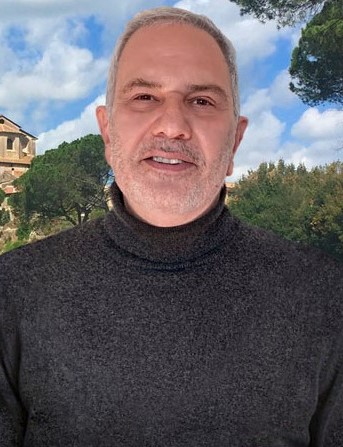Hospitality Communications in a Time of Coronavirus: Tips for Maintaining Trust and Engagement

By Leora Halpern Lanz, Marco Ferrari and Dr. Makarand Mody
The last three weeks have been like no other in our lifetimes. Watching the world of travel, hotels, restaurants, and hospitality in general, turn upside down – so rapidly, around the world – has been disheartening and simply surreal.
As marketers and communicators who have had the privilege to work together transnationally, over time, for nearly three decades, our collaboration on these simplistic checklists is evidence of the “global-ness” and camaraderie of our industry. And this period of mandated physical distance has only strengthened our desire to stay connected even more.
With regard to hotels (or restaurants, destinations, and attractions) whether in Italy, the United States or anywhere else, our issues are the same, just perhaps in different languages. Maintaining trust in these challenging times, among all stakeholders, is key. If there was ever a time for thoughtful, compassionate, informative and effective communications to maintain strong brand integrity and continue to create value for all stakeholders, it is now.
As reiterated by the Public Relations Society of America, the primary essence of communication is to share:
- Transparency: to build and reinforce credibility;
- Truthfulness: fundamental to gaining public trust;
- Timeliness: for authenticity and accuracy.
Effective crisis communications involve media management, incident management and the management team itself.
We attempt to provide an easy-to-navigate set of checklists for effective communication by hospitality leaders during this unprecedented pandemic. These lists are not meant to be prescriptive; rather we hope to provide leaders with crisis management and communication strategies that may help effectively navigate these uncertain times by maintaining stakeholder trust. Different aspects of the checklist may apply if you are a hotel or restaurant company; and other aspects depend on the scale of the operation with which you are dealing. Do keep in mind, we are experiencing a dynamic situation. Modifications may need to be made along the way. We offer six checklists covering the overall communications strategy for an operational hospitality asset, internal communications, media communications, external touchpoints, proactive sales and marketing communications, and leadership communications.
- Overall Communications Strategy for the Hospitality Asset Operating During this Period of Difficulty:
- Inform all in house guests regularly – at the point of check in and throughout the stay – about the measures adopted, the procedures to be followed in case of emergency and provide a point person of reference and an emergency number.
- Distribute local Health Organization protocols in all guestrooms and public areas; Reliable sources for this coronavirus outbreak (in the U.S.) include:
- World Health Organization (WHO);
- Centers for Disease Control and Prevention;
- S. Food and Drug Administration;
- Occupational Safety and Health Administration.
- Create an information point on your website and social networks to share pertinent and relevant links to helpful sources.
- Establish an internal communications network.
- Develop an external communication strategy, including communicating with media and a proactive sales and marketing communications strategy.
- Develop scenario-based holding statements (i.e. briefing, hotel in an affected zone, a case at the hotel, national lockdown, etc.).
- Follow regular news updates and inform customers.
- Keep in mind that associates who are confident in the processes in place at the property level can instruct guests comfortably and instill confidence that their health and safety are taken seriously.
- Remember: your internal and external communications should demonstrate leadership in the industry in these difficult times.
- Internal Communications–Establish the Communications Network:
Whether a single or small business, or a large brand or company with franchisees and numerous stakeholders, many of these tips apply:
- Create a Crisis Unit (department heads with a clear indication of the respective roles – i.e. staff & family relations, local authority management, guests and staff health services, guest relations, external communications, etc.) and appoint a spokesperson. Make sure no staff is speaking to the public or to the media about the emergency. Centralization of communication is key.
- Develop procedures to be followed for internal reporting of all departments, including a daily briefing to the Crisis Unit Leader.
- Develop and circulate a document among all employees which includes telephone numbers and email addresses of all key department heads, and spokesperson.
- Instruct all department heads to ensure their availability 24/7 during any emergency period.
- Prepare positioning statements about guest and staff safety, and prepare background statements about incident policies and procedures (e-hotelier, March 22, 2019).
- Remember, internal communications first. Reach out to employees, suppliers, other stakeholders, and guests before sharing news with the public. A Chief HR person or point person should also be designated as the contact if associates are furloughed or laid-off during the crisis. Communication with employees, regardless of the situation, should be frequent, compassionate, easy to understand and provide a clear opportunity for employees to engage, provide feedback or ask questions.
- Let the media know who is the point person for information.
- The Basics for Communicating with Media:
- Use a professional press office specialist (or consider hiring one if you do not have on staff). This is not the time for amateur style communications
- Be prepared to answer questions (i.e. Who is the guest? How many guests are impacted? How did it happen? What is the process? How are you preventing more such situations?).
- Be truthful and stick to the facts. Demonstrate authentic concern for all involved. Be sure responses are prepared and affirmed in advance (as much as possible). Return all media calls and call reporters back. Stay calm and stay on message.
- Never speculate or respond to hypotheticals. Never say “no comment.” Avoid sarcasm.
- Never share the name of guests or any other confidential information with the media.
- There is no such thing as “off the record.”
- External Touchpoints for Sharing Information:
- Always start with your website to keep news current. Post on the homepage and include date and time so browsers understand the timeliness and recency of the information shared.
- Update all social sites with links back to the proper landing page on your website.
- Share information via email lists and ensure addresses are updated if bounced back.
- Depending on the scale of the company, consider a very brief video from the CEO (2-3 minutes is ideal) that conveys empathy, the facts, and a sense that “we’re all in this together.”
- Utilize the technologies available today to establish webinars or forums to keep stakeholders together, converse, and provide virtual yet emotional support.
- Develop a Q&A format emailer, short yet informative, to preempt rumors and answer questions that lie among the constituency.
- Determine if or how you (restaurant or hotel) can pay it forward despite the crisis. How can philanthropy and goodwill prevail? Help take care of associates, guests, the local community.
- Be creative with ways to stay relevant, functioning and helpful; consider opportunities such as offering staff to assist older people in the community with grocery shopping (either shopping for them or driving them to the grocery store); become a virtual focal point or foundation for the community. Determine ways to repurpose products and services to be able to maintain operations as best as possible (e.g., a changed menu that enables food delivery).
- Remember to maintain updates and contacts with OTAs, food delivery companies, and other third parties who represent you so all touchpoints are communicating similarly.
- Advocate and advocate more. When business interruption causes mayhem as it does today, connect with legislators and state and national associations who can best represent your interests to keep your name vibrant.
- Proactive Sales and Marketing Communications
Communicators, sales and marketers should remain vigilant and modify marketing initiatives to be appropriate for the period of crisis and to be ready to welcome people back:
- Refresh Profile Website Home Page and Key Landing Pages: Make sure you take the time to show a product that looks alive and ready to welcome people back.
- Offer Value-Adds: Encourage customers not to cancel but postpone reservations at a later date if at all possible. Value-adds can help cut through the clutter and connect with consumers to place you back and top of mind.
- Focus on SEO and prepare your website with new keywords to be relevant for the new paradigms of the returning business, so you can more easily be found.
- Don’t Hide. actively participate and help the community. Speak if you have something valuable to share. Engage in conversations with the public, offer to help internal and external communities; ask for feedback and more ideas. Liaising with the public creates a sense of belonging and potentially a co-creation of valuable content.
- If at all possible, modify the cancellation language just in case a group or individual is forced to cancel because of this crisis. People want to hear this; they don’t want to work with a restaurant, hotel or venue that is inflexible. And be vocal about your willingness to help.
- If your hotel or restaurant does close, maintain occasional communications via social media to show care and compassion for the employees, the guests, and the industry.
- Communications to Demonstrate Effective Leadership
As the great leadership strategist and author Carmine Gallo recently shared (Forbes, March 21, 2020), if there is ever a great example of authentic (hospitality) leadership and communications, it’s the recent video posted by Marriott CEO Arne Sorenson. Behaving and communicating in a manner that is genuine, “inspires loyalty.”
The leader who can tell his/her stakeholders about the bad news directly without “beating around the bush,” showing a “shared sacrifice” (taking no salary for the balance of the year), express with genuine emotion, and conclude with a message of hope for the future, is a leader to whom the rest of us can look up and take lead.
Remember that we can persist through this dramatic emergency if we work together with no boundaries or cultural differences, if we share ideas and recommendations, and engage in a constant global dialogue to re-discover the power of diversity and the communication capabilities we have today. Hospitality Strong.
References
Gallo, C. (2020). Marriott’s CEO Demonstrates Truly Authentic Leadership In A Remarkably Emotional Video. Forbes.
Free Course for Hoteliers: Coronavirus Awareness. (n.d.). Retrieved from https://academy.ehotelier.com/coronavirus-awareness/
Leora Halpern Lanz, ISHC is marketing faculty at Boston University’s School of Hospitality Administration (BU SHA) and chair of the Master of Management in Hospitality (MMH) program. She is also the principal of LHL Communications, a hospitality-focused marketing communications, branding, and media advisory. She served for 15 years as the Global Director of Marketing for hospitality consulting giant HVS, nearly 10 years as the New York-based regional director of public relations and advertising for ITT Sheraton (where she worked with Marco), and nearly five years as the Director of Public Relations for the Greater Boston Convention and Visitors Bureau.
 Marco Ferrari is the principal of Rome, Italy-based Marco Ferrari Branding. He is a communication and marketing veteran, with over 25 years of international experience, including stints at Hilton, CIGA, ITT Sheraton and Starwood Hotels & Resorts.
Marco Ferrari is the principal of Rome, Italy-based Marco Ferrari Branding. He is a communication and marketing veteran, with over 25 years of international experience, including stints at Hilton, CIGA, ITT Sheraton and Starwood Hotels & Resorts.
Marco launched the iconic brands of Westin and Four Points in Europe, and managed the repositioning of Sheraton, Luxury Collection, St. Regis and Le Meridien there too. He also supported the market positioning of SPG (Starwood Preferred Guest) with SPG-TV, a content-based in-house self-funded TV program, that soon became a global Starwood application. Throughout his career, he worked with assets including Sofitel, Baglioni Hotels, Palazzo di Varignana, Hotel Hassler in Rome, Regina Isabella in Ischia, Borgo San Felice in the heart of Chianti and the hotel Lefay on Lake Garda.
